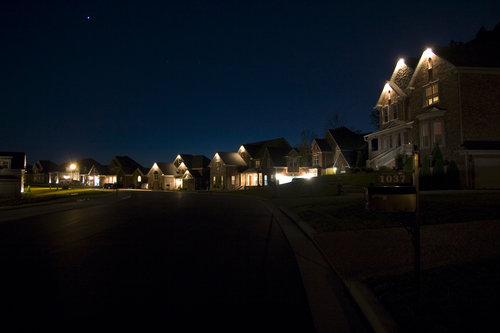Deals to sell homes failed at a much higher rate in 2016 than in 2015, and that was true here in Houston.
That was the finding of a striking new report from Trulia, which computed the number of pending sales in 2016 that returned to the market. Here in Houston, 6.6 percent of home sales failed to close, which was a pronounced increase from the 6.0 percent of 2015.
Additionally, Trulia found that home sale fails were more concentrated in lower price points. So in Houston, 12.8 percent of starter home sales failed (up from 8.7 percent in 2015), compared to 11.3 percent of trade-up home sales (up from 11.0 percent) and 4.2 percent of premium home sales (the same as in 2015).
Click on the tabs in our chart below to see how Houston’s rate of home-sale fails compares with other metro areas:
Total Home Sales Fails
| US Metro | Percentage of Sale Fails, 2015 | Percentage of Sale Fails, 2016 |
|---|---|---|
| Atlanta | 5.1% | 10.4% |
| Boston | 4.6% | 6.1% |
| Chicago | 5.4% | 8.0% |
| Dallas | 3.9% | 8.9% |
| Houston | 6.0% | 6.6% |
| Los Angeles | 5.4% | 10.3% |
| Miami | 2.0% | 3.0% |
| New York | 0.9% | 1.9% |
| Philadelphia | 0.8% | 2.8% |
| Phoenix | 0.5% | 4.1% |
| San Francisco | 3.8% | 5.0% |
Starter Home Sale Fails
| US Metro | Percentage of Starter Home Sale Fails, 2015 | Percentage of Starter Home Sale Fails, 2016 |
|---|---|---|
| Atlanta | 7.1% | 13.8% |
| Boston | 6.3% | 9.0% |
| Chicago | 7.3% | 11.3% |
| Dallas | 6.7% | 15.0% |
| Houston | 8.7% | 12.8% |
| Los Angeles | 5.8% | 12.2% |
| Miami | 3.0% | 6.0% |
| New York | 1.0% | 3.0% |
| Philadelphia | 0.7% | 1.2% |
| Phoenix | 0.8% | 4.6% |
| San Francisco | 4.0% | 6.5% |
| Seattle | 7.3% | 8.6% |
Trade-Up Home Sale Fails
| US Metro | Percentage of Trade-Up Home Sale Fails, 2015 | Percentage of Trade-Up Home Sale Fails, 2016 |
|---|---|---|
| Atlanta | 6.5% | 13.6% |
| Boston | 5.3% | 7.0% |
| Chicago | 5.9% | 9.9% |
| Dallas | 6.4% | 13.8% |
| Houston | 11.0% | 11.3% |
| Los Angeles | 6.0% | 12.3% |
| Miami | 2.4% | 4.4% |
| New York | 0.7% | 1.6% |
| Philadelphia | 0.8% | 2.6% |
| Phoenix | 0.6% | 4.6% |
| San Francisco | 4.2% | 4.8% |
| Seattle | 5.1% | 6.5% |
Premium Home Sale Fails
| US Metro | Percentage of Premium Home Sale Fails, 2015 | Percentage of Premium Home Sale Fails, 2016 |
|---|---|---|
| Atlanta | 3.5% | 7.5% |
| Boston | 2.9% | 3.8% |
| Chicago | 4.0% | 5.3% |
| Dallas | 2.5% | 5.9% |
| Houston | 4.2% | 4.2% |
| Los Angeles | 4.6% | 7.7% |
| Miami | 1.4% | 1.6% |
| New York | 0.9% | 1.2% |
| Philadelphia | 0.9% | 3.8% |
| Phoenix | 0.4% | 3.5% |
| San Francisco | 3.3% | 3.7% |
| Seattle | 4.0% | 4.6% |
Why are home sales setting sail for fail?
Why is it that home sales failed as such a higher rate from 2015 to 2016? Trulia presented a number of possible reasons:
•First-time homebuyers were more active in the 2016 market; their portion of all sales rose from 32 percent in 2015 to 35 percent last year. Because first timers are unfamiliar with the process and have less equity/financial history (and thus bring on more scrutiny from lenders), they could have accounted for more of those home-sale fails, especially in lower price points. Trulia also noted that first-time buyers are more likely to use FHA financing, and the restrictions for those loans could lead to a deal falling through.
•The age of the home could also play a role. Trulia found that homes built in 2016 had the lowest failed sale rate at 2.6 percent, while homes that were around 50 years old had the highest fail rate (as high as 5.9 percent). That pattern, of middle-aged homes having the highest fail rate, was consistent across starter, trade-up and premium homes, and Trulia concluded that maintenance needs were to blame. Once homes enter their third or fourth decade of existence, they begin to face their first round of expensive repairs and renovations – the kinds of costly jobs that can scare away potential homebuyers.


Trulia does not have accurate content because they are a third-party non-realtor. The only place where real/accurate information is, is from HAR (Houston Assoc of Realtors) where all realtors enter their listings & solds. Trulia only has what a “very few” realtors give them, so Trulia’s info is not reliable, not complete and not accurate. That’s like taking total bread sales in Harris cty from a few Valero stories, as fact, while omitting sales from the primary groceries like HEB, Kroger, etc